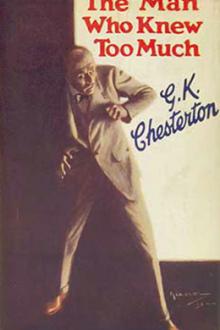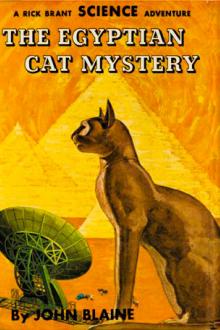Genre Mystery & Crime. Page - 13

suffering from lameness; let me look at your foot."
Mr. Neal's malady, however serious it might be in his own estimation, was of no extraordinary importance in a medical point of view. He was suffering from a rheumatic affection of the ankle-joint. The necessary questions were asked and answered and the necessary baths were prescribed. In ten minutes the consultation was at an end, and the patient was waiting in significant silence for the medical adviser to take his leave.
"I cannot conceal from myself," said the doctor, rising, and hesitating a little, "that I am intruding on you. But I am compelled to beg your indulgence if I return to the subject of Mr. Armadale."
"May I ask what compels you?"
"The duty which I owe as a Christian," answered the doctor, "to a dying man."
Mr. Neal started. Those who touched his sense of religious duty touched the quickest sense in his nature.
"You have established your claim on my attention," he said, gravely. "My time is yours."

hat far-reaching and intimate knowledge of inner historywhich has perennially astonished his readers. The Crimes werepublished in Paris, in 1839-40, in eight volumes, comprising eighteentitles--all of which now appear in the present carefully translatedtext. The success of the original work was instantaneous. Dumaslaughingly said that he thought he had exhausted the subject offamous crimes, until the work was off the press, when he immediatelybecame deluged with letters from every province in France, supplyinghim with material upon other deeds of violence! The subjects whichhe has chosen, however, are of both historic and dramatic importance,and they have the added value of giving the modern reader a clearpicture of the state of semi-lawlessness which existed in Europe,during the middle ages. "The Borgias, the Cenci, Urbain Grandier,the Marchioness of Brinvilliers, the Marchioness of Ganges, and therest--what subjects for the pen of Dumas!" exclaims Garnett.
Space does not permit us to c

Rozaine, gloomy and reserved, and thought of the double role that he was playing, I accorded him a certain measure of admiration.
On the following evening, the officer on deck duty heard groans emanating from the darkest corner of the ship. He approached and found a man lying there, his head enveloped in a thick gray scarf and his hands tied together with a heavy cord. It was Rozaine. He had been assaulted, thrown down and robbed. A card, pinned to his coat, bore these words: "Arsène Lupin accepts with pleasure the ten thousand francs offered by Mon. Rozaine." As a matter of fact, the stolen pocket-book contained twenty thousand francs.
Of course, some accused the unfortunate man of having simulated this attack on himself. But, apart from the fact that he could not have bound himself in that manner, it was established that the writing on the card was entirely different from that of Rozaine, but, on the contrary, resembled the handwriting of Arsène Lupin as it was reproduced in an o

oking for them here."
March thought of asking him what he was looking for; but, feeling unequalto a technical discussion at least as deep as the deep-sea fishes,he returned to more ordinary topics.
"Delightful sort of hole this is," he said. "This little delland river here. It's like those places Stevenson talks about,where something ought to happen."
"I know," answered the other. "I think it's because the place itself,so to speak, seems to happen and not merely to exist.Perhaps that's what old Picasso and some of the Cubists are tryingto express by angles and jagged lines. Look at that wall likelow cliffs that juts forward just at right angles to the slopeof turf sweeping up to it. That's like a silent collision.It's like a breaker and the back-wash of a wave."
March looked at the low-browed crag overhanging the greenslope and nodded. He was interested in a man who turnedso easily from the technicalities of science to those of art;and asked him if he admired the new angular art

Paul sighed and dug into his pocket and pulled out his wallet. "I've only got $600 on me," he said as he leafed through the bills. "That was going to be my bribe money for the night."
"If you can spare it, it'd help. I've already doled out all my cash on hand to secure the place and get the liquor. But we still need..."
"I know, I know," said Paul, handing the money to Sandee. "Let's just try and make tonight kick ass so we can earn that back as quick as possible."
"We should be flush by dawn, my dear," Sandee assured him. "Just you wait."
"That's the plan anyway. But would you explain that to Chloe for me?"
"What is Chloe doing tonight, anyway?" Sandee asked. "I was hoping to get her to come out with me and check out the new help at the Hyatt."
"She's busy getting everything set up for our visitors. She's kind of freaking out about all the little details."
"Oh my, are they coming in tonight? I thought that was next week."

and the villainy which rendered us more than ever impatient of delay. In my fly-blown blankets I dreamt of London until I hankered after my chambers and my club more than after much fine gold. Never shall I forget my first hot bath on getting back to Melbourne; it cost five shillings, but it was worth five pounds, and is altogether my pleasantest reminiscence of Australia.
There was, however, one slice of luck in store for me. I found the dear old Lady Jermyn on the very eve of sailing, with a new captain, a new crew, a handful of passengers (chiefly steerage), and nominally no cargo at all. I felt none the less at home when I stepped over her familiar side.
In the cuddy we were only five, but a more uneven quintette I defy you to convene. There was a young fellow named Ready, packed out for his health, and hurrying home to die among friends. There was an outrageously lucky digger, another invalid, for he would drink nothing but champagne with every meal and at any minute of the day, and I have

mine, and tonight--and why shouldn't you have ten pound as well as another?"
"There's nothing to do but what you say?" I asked.
"Nothing--not a thing!" he affirmed.
"And the time?" I said. "And the word--for surety?"
"Eleven o'clock is the time," he answered. "Eleven--an hour before midnight. And as for the word--get you to the place and wait about a bit, and if you see nobody there, say out loud, 'From James Gilverthwaite as is sick and can't come himself'; and when the man appears, as he will, say--aye!--say 'Panama,' my lad, and he'll understand in a jiffy!"
"Eleven o'clock--Panama," said I. "And--the message?"
"Aye!" he answered, "the message. Just this, then: 'James Gilverthwaite is laid by for a day or two, and you'll bide quiet in the place you know of till you hear from him.' That's all. And--how will you get out there, now?--it's a goodish way."
"I have a bicycle," I answered, and at his question a thought struck me. "How did you intend to get out the

ave in me the instinct of the chase. Were I a man I should be a trapper of criminals, trailing them as relentlessly as no doubt my sheepskin ancestor did his wild boar. But being an unmarried woman, with the handicap of my sex, my first acquaintance with crime will probably be my last. Indeed, it came near enough to being my last acquaintance with anything.
The property was owned by Paul Armstrong, the president of the Traders' Bank, who at the time we took the house was in the west with his wife and daughter, and a Doctor Walker, the Armstrong family physician. Halsey knew Louise Armstrong,--had been rather attentive to her the winter before, but as Halsey was always attentive to somebody, I had not thought of it seriously, although she was a charming girl. I knew of Mr. Armstrong only through his connection with the bank, where the children's money was largely invested, and through an ugly story about the son, Arnold Armstrong, who was reported to have forged his father's name, for a considerable amo

e building, divided into apartments or flats of a dismal and dingy sort. We found the landlady in the basement: a gaunt woman in soiled gray, with a hard, thin-lipped mouth and pale, suspicious eyes. She was rocking vigorously in a creaking chair and sewing on a pair of overalls, while three dirty kids tussled with a mongrel puppy up and down the room.
Dean showed his badge, and told her that we wanted to speak to her in privacy. She got up to chase the kids and their dog out, and then stood with hands on hips facing us.
"Well, what do you want?" she demanded sourly.
"Want to get a line on your tenants," Dean said. "Tell us about them."
"Tell you about them?" She had a voice that would have been harsh enough even if she hadn't been in such a peevish mood. "What do you think I got to say about 'em? What do you think I am? I'm a woman that minds her own business! Nobody can't say that I don't run a respectable --"
This was getting us nowhere.
"Who lives in number one?" I asked.
"The

hed. "I think my way of spelling is just as good as hers."
Bartouki and the boys laughed sympathetically. The little merchant said, "Whatever the spelling, El Mouski will fascinate you. Many things are made there especially for tourists. Some of the workmanship is excellent, and the prices are very low."
"We haven't had much luck with bazaars that cater to tourists," Scotty replied. "We prefer markets where local people buy, because the things are more authentic."
Bartouki chuckled. "That is wise, in most countries. But consider. The attraction for tourists are things that are clearly Egyptian in origin, no? Such things vanished from all but our museums some years ago. You could not buy a genuine Egyptian tapestry, or a stone carving from a tomb. Such things are beyond price. They are national treasures. But you can buy very attractive and authentic reproductions."
"The people of Cairo wouldn't want reproductions, would they?" Barby asked. "So they have to be made just for tourists